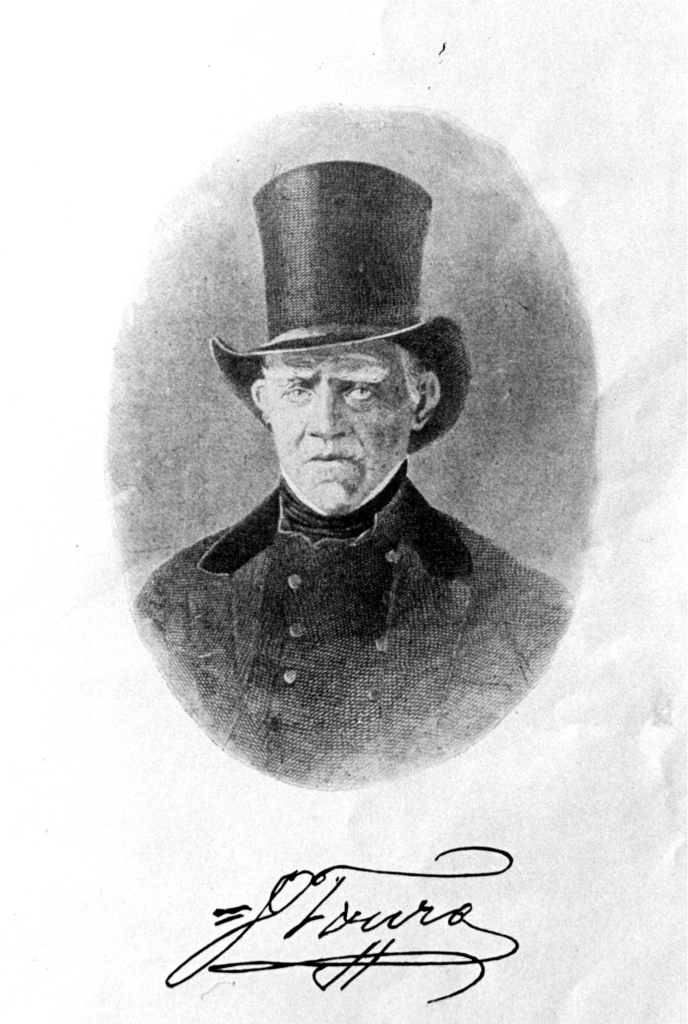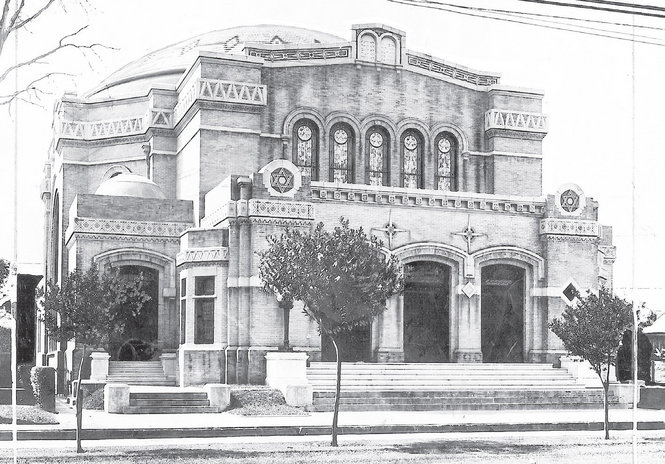Our History

In 1828, just 25 years after the Louisiana Purchase, the founders of what would eventually become Touro Synagogue started one of the first Jewish temples outside the 13 original colonies. Today, Touro Synagogue of New Orleans remains one of the oldest continuously operating synagogues in the country.
According to the Code Noire (1724), Jews should have been excluded from the French territory of Louisiana. But the business acumen of Jewish merchants proved more important to the financial future of New Orleans than upholding the rules of the French government. When President Jefferson negotiated the 1803 Louisiana Purchase with Napoleon, and Louisiana came under American jurisdiction, Jews acquired the right to freely inhabit what would become the 18th state in the Union, reveling in the religious freedom promised by the Constitution.
Touro Synagogue’s congregation results from a union between two original congregations, Congregation Gates of Mercy and Congregation Dispersed of Judah. Shangarai-Chasset (Gates of Mercy) was founded in 1828. Their first synagogue was located on North Rampart Street west of the French Quarter. Gates of Mercy followed the Ashkenazic rituals, leading some Portuguese members, preferring the Sephardic tradition, to separate and form Nefutzoth Yehudah (Congregation Dispersed of Judah) in 1846.
On February 6, 1881, the congregations reunited and moved into a building on Carondelet Street. The merger strengthened the Jewish community in New Orleans at a time when both congregations were struggling economically and recovering from the loss of many lives to the Yellow Fever epidemic of 1878. The new congregation eventually took the name Touro Synagogue after the benefactor of both communities, merchant-philanthropist Judah Touro, son of Isaac Touro, leader of the Rhode Island synagogue named for him.

Touro joined the Reform movement in 1891 and has been a thriving and dynamic leader in the movement and southern Jewry ever since. Our Synagogue has long acknowledged the civic responsibility inherent in being a historic landmark and continues its vital role as a passionate active advocate for the most pressing issues of our times and as a spiritual anchor in the city of New Orleans and the southern region of our nation.
Touro has been blessed by inspirational clergy, who have led worship, shaped liturgy, and built community within and outside of the walls of the congregation. Most have held long tenures. There have been just seven Senior Rabbis during our history: Rabbi Isaac Leucht, 1881-1914; Rabbi Emil Leipziger, 1914-1947; Rabbi Leo A. Bergman, 1948-1976; Rabbi David Goldstein, 1978-2005; Rabbi Andrew Busch, 2005-2008; Rabbi Alexis Berk, 2008-2019; Rabbi Katie Bauman, 2019-present.
Our Cantors, too, have played a prominent role in the Synagogue’s history as music has been an essential part of the prayer experience at Touro. In 1882, The New Orleans Times-Democrat wrote, “Lovers of good music should not fail to attend this Synagogue.” Today, our Synagogue remains a magnet for music lovers who are drawn to the extraordinary weekly music of Shabbat, the iconic, annual Jazz Fest Shabbat, and consistent special music programming. Touro has had a wealth of talented cantors, including Cantor Stephen Dubov, Cantor Jordan Franzel, Cantor Seth Warner, Cantor Billy Tiep, Cantor Jason Kaufman, Cantor Jamie Marx, and Cantor David Mintz. Cantor Kevin Margolius is the current Cantor.
In 2015, Rabbi Todd Silverman became the third clergy member of what had historically been a two-person clergy team, helping to meet the expanding pastoral and educational needs of an ever-growing, active congregation.